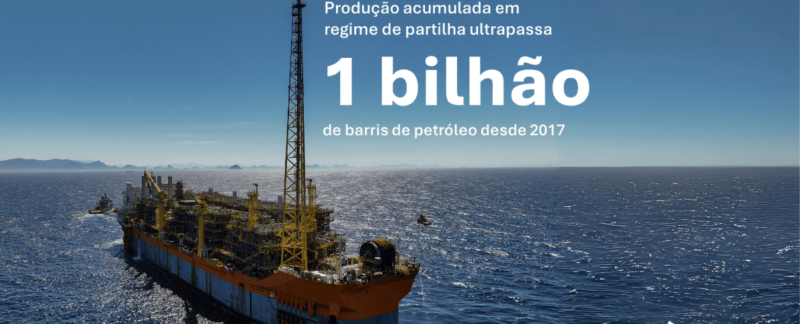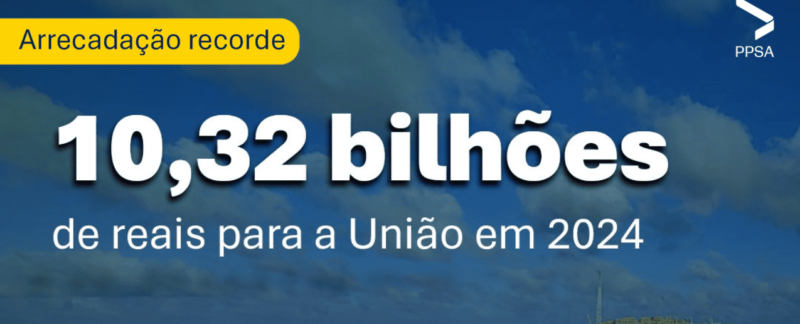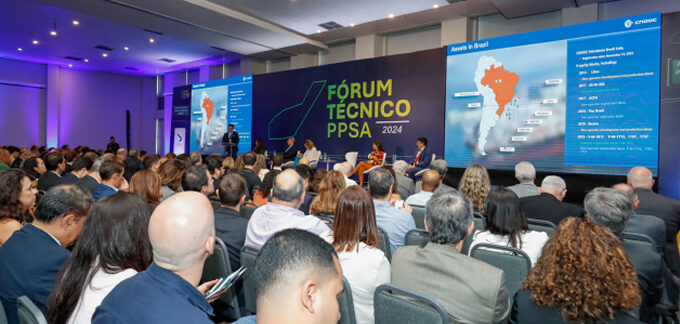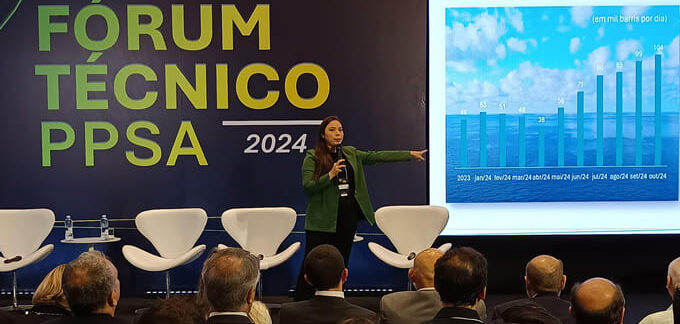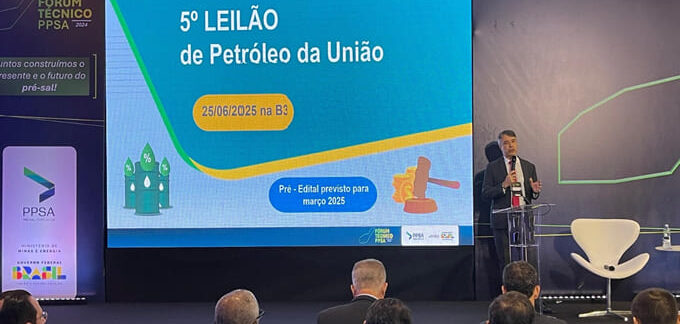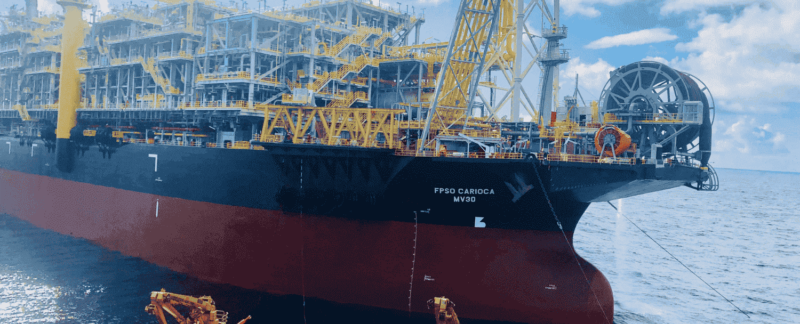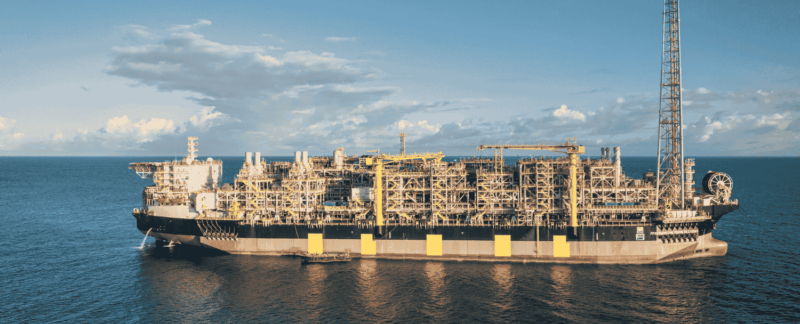The Technical Forum promoted by PPSA (Pré-Sal Petróleo S.A) brought together authorities, executives from leading oil companies, and industry experts to discuss the future of the pre-salt, the technological innovations needed to reduce emissions, and the legal and operational challenges impacting the sector. The event, held in Rio de Janeiro, covered topics such as the next steps for the pre-salt, the challenges in ramping up the platforms, and the investments required to ensure the continuity of production. The opening of the Forum was conducted by Pietro Mendes, Secretary of Oil and Natural Gas at the Ministry of Mines and Energy (MME), who emphasized the importance of the oil sector for the national economy and the changes being studied by the government to improve the production sharing regime. Mendes also discussed other actions by the MME to ensure the competitiveness and sustainability of the industry.
Mendes reminded us that the government is analyzing changes to the production-sharing agreements in order to adapt the business model to the economic and operational needs of the sector.
“One of the changes we are studying is allowing the extension of production-sharing agreements in cases where economic advantage for the Government can be demonstrated. Therefore, we will need to analyze whether this agreement extension is advantageous for the Government, but the goal is to create this possibility, obviously, after consulting with PPSA and ANP, which could implement the extension,” said Mendes.
Currently, production-sharing agreements do not foresee the possibility of renewal, and any change in this regard will require legislative amendments. The current model establishes that, after the agreement ends, the fields must be returned to the Government, which, in some cases, may not be advantageous for the country. The
extension proposal aims to ensure the continuity of production and investments in fields that still have significant potential.
Tabita Loureiro, Acting President of PPSA, presented the “Estimates of Results in Production Sharing Agreements,” with a focus on the coming years. The company’s assessment indicates that production-sharing agreements will require investments of BRL 53 billion in the next five years. In addition, she emphasized that all these commercial projects will require the drilling of 145 wells between exploration and production during this same period. The forecast is for the installation of 11 new FPSOs (Floating Production, Storage, and Offloading unit) by the end of the decade.
“And by delivering increasingly decarbonized oil, in the range of 10 to 11 kilograms of CO2 per barrel of oil equivalent, we are competitive in the energy transition scenario,” said Tabita Loureiro.
The Future of Pre-Salt: Challenges and Opportunities
In the panel “The Future of the Pre-Salt: Adapting to a New Scenario, moderated by Tabita Loureiro, the participants discussed the challenges and opportunities of the pre-salt in the coming years. The conversation involved major industry figures, such as Paula Pereira da Silva, Country Manager of Galp Brasil; Huang Yehua, President of CNOOC Brasil; Alberto Ferrin, President of ExxonMobil Brasil; Heloísa Borges, Director of Oil, Gas, and Biofuels Studies at EPE; and Pietro Mendes.
Industry executives highlighted that, despite the challenges of the regulatory environment and rising costs, Brazil remains an attractive region for investments in the oil and gas sector. The need for public policies to ensure the continuity of these investments was a central point of the discussion.
Challenges in Platform Ramp-up
The afternoon panel addressed the challenges, lessons learned, and success stories in the process of installing FPSOs in the pre-salt. Moderated by Samir Awad, Commercialization Director at PPSA, the debate brought together experts such as Vinícius Carvalho, Operations Manager at Equinor; João Carlos de Araujo, General Manager of Project Implementation at Petrobras; Alan Buchi, Commercial Director at FMC Technip; Pedro Rabello, Operations Manager at Subsea 7; and Luiz Bispo, Operational Safety Superintendent at ANP.
Among the key points discussed were the logistical and operational challenges faced by companies during the first oil and ramp-up, such as coordination between suppliers, the orchestrated installation of infrastructure, commissioning, and issues related to environmental licensing and compliance with ANP’s operational safety requirements.
New Auctions and Market Outlook
Finally, Guilherme França, Commercialization Superintendent at PPSA, presented the “Volume Estimates for the 5th Oil Auction of the Government” and the next steps for the Natural Gas Auction.
PPSA estimates the sale of 78 million barrels of oil from the Government on June 25 of next year at B3 in São Paulo. The 5th Oil Auction of the Government will sell the production of the Government from the Mero, Búzios, Sépia, Itapu, and Norte de Carcará fields.
França also announced that the 1st Natural Gas Auction of the Government is scheduled to take place in the fourth quarter of 2025. “We are currently analyzing the hiring of the Integrated Offloading System (SIE) and the Integrated Processing System (SIP), which are necessary for the execution of the bidding process.”, he explained.
The final panel, titled “Remaining Potential of the Pre-Salt Polygon,” was moderated by Rudy Ferreira, Exploration Superintendent at PPSA, and featured contributions from Jair Rodrigues Soares, Exploration Geosciences Coordinator at PPSA; Bruna Lyra and Eduardo Leaubon, from Viridien; Juliana Santos, from TGS; and Ildeson Prates Bastos, Superintendent of Geological and Economic Evaluation at ANP.
The experts detailed the remaining exploration opportunities in the pre-salt polygon and presented seismic data and analyses on prospects identified in the polygon, which, according to studies, continue to demonstrate a geological potential for oil and gas. Check the detailed schedule: https://www.presalpetroleo.gov.br/forum-tecnico/



